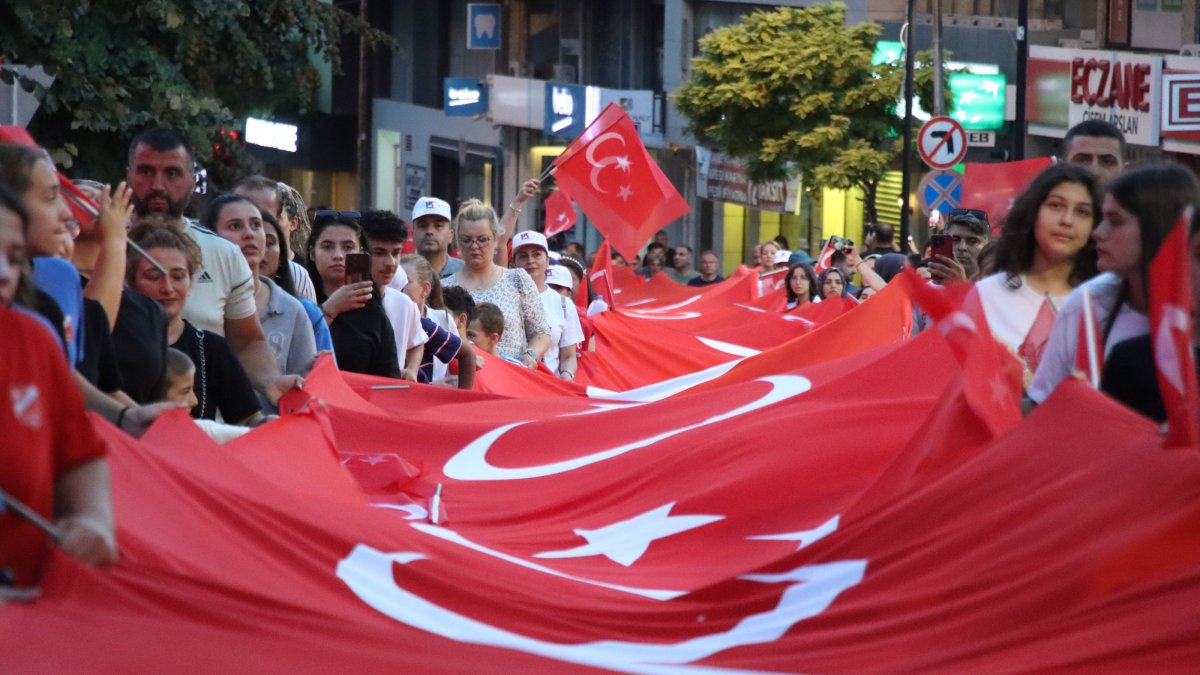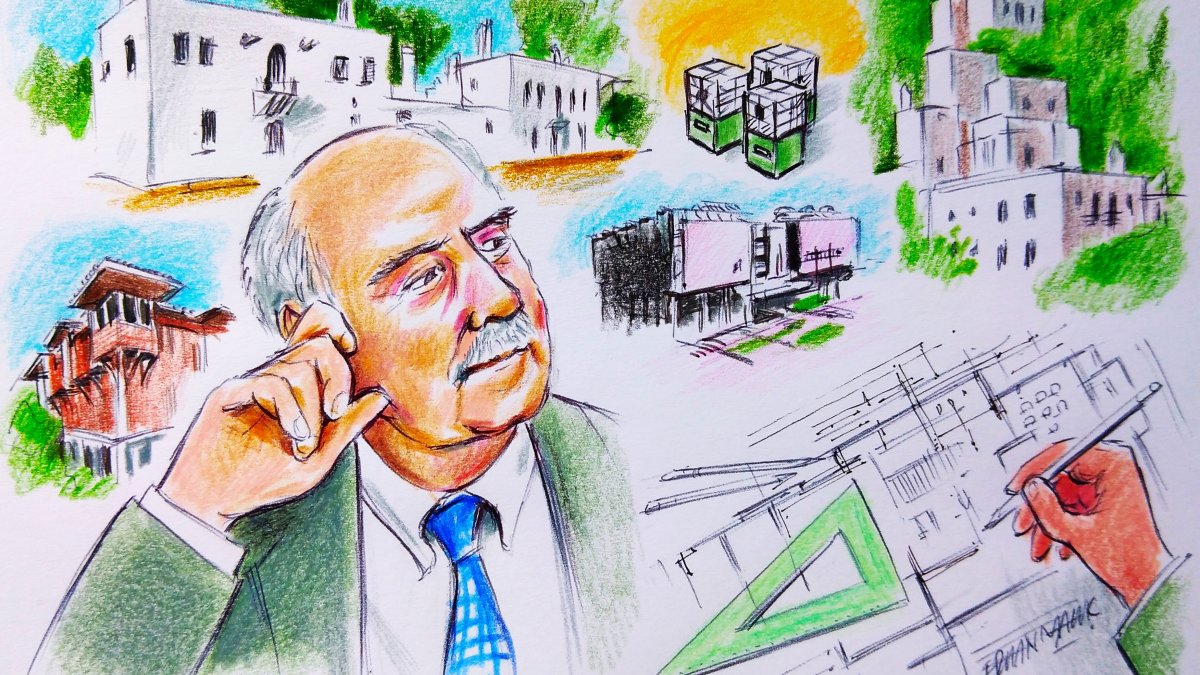It’s Türkiye’s time to shine, to be what it might have been
Source: DAILYSABAH
Fifteen years ago, in his book “The Next 100 Years,” George Friedman, a renowned American political scientist and a major pioneer of geopolitical analysis in our time, predicted that Japan, Poland and Türkiye would emerge as three significant powers over the following decades. Friedman, in his recent article with Kamran Bokhari, a foreign policy specialist at the University of Ottawa’s Professional Development Institute (and former senior analyst at Friedman’s Geopolitical Futures publication company), continues his previous theories. They conclude that Japan’s stable and growing economy, along with its focus on military development, reflects a steady increase in its power. Poland, now the fifth-largest economy in Europe and advancing in military development, is similarly gaining influence. However, both are constrained by major powers: Japan by China and Poland by Russia.
Friedman and Bokhari presume, “Now is Türkiye’s time to shine,” because: “It has a large military and economy that … flashes the kind of potential few others in the region can … It has a massive geopolitical opportunity. With Russia bogged down in Ukraine, the United States seeking to reduce its global footprint, Iran suffering losses throughout the region that have been complicated by its internal leadership transition, and Israel reeling from crises at home and abroad, Turkey can exploit these openings in any direction in which it has fundamental interests.”
Despite all challenges, we did it
Yes, indeed. The Turkish economy has grown modestly but consistently over the last 24 quarters. It ranked as the 16th-largest in the world and seventh-largest in Europe by nominal gross domestic product (GDP) in 2025. It is also ranked as the 12th-largest in the world and fifth-largest in Europe by the absolute purchasing power (PPP) of the countries’ currencies in 2025. After three short years of economic crisis, Türkiye’s nominal GDP per capita and GDP-PPP per capita have eventually reached their all-time peak values in 2024.
In case someone at the Greek Council of Ministers is wondering how Türkiye can order up to 40 Eurofighter Typhoon jets (at 102 million euros /$119 million per aircraft), they can look up Türkiye’s economic growth. No one should wonder how Türkiye has managed to host 6 million Syrian refugees over the past 14 years, or how it has laid the groundwork for national unity and the return of its people, both politically (i.e., militarily) and economically (i.e., infrastructurally).
As a fixed-income earner, let me tell you, it was not easy from the popular perspective. But the self-sacrifice of the nation, especially the trade unions of workers and government employees and their top confederations; our historical ability to be content with little; and, most important of all, the political stability we provided by voting for those politicians who shared fundamental values of people made it possible to keep our own country in one piece (in spite of a separatist terrorism that reared its ugly head in the mainly Kurdish areas in the southeast Türkiye 40 years ago).
Progress within, empowering beyond
Türkiye not only maintained its own integrity but has also been assisting Syria and Iraq to maintain their territorial unity. Despite the neocon and globalist interventionism trying to dismember Iraq and Syria and to create a so-called Kurdistan and clear the way for the “Greater Israel,” Türkiye helped them overcome their internal problems.
As a “once-brain-washed Middle Easterner,” let me tell you, it was not easy from the popular perspective. The holy U.S. of the mighty America would send its remapping engineers and its CENTCOM to carve out a terroristan in Iraq and Syria as wished by the American Israel Public Affairs Committee (AIPAC), the organization of “more than 5 million proud, pro-Israel Americans working to strengthen bipartisan support for the U.S.-Israel relationship.” The Turkish government would say “No!” I tell you: Better men would shake in their shoes; it was not everybody’s cup of tea to dismiss the top CENTCOM general when he was creating an army called “Syrian Democratic Forces to create a secular, democratic, and federalized Syria” manned by PKK terrorists and headed by the godson of the PKK’s founder, Abdullah Öcalan!
But we did it. I mean, Türkiye did it. President Recep Tayyip Erdoğan and his ministers talked to both sides of the aisle that separated two families of the Iraqi Kurds; they agreed that union in a big territorially integrated Iraq would be much better then to have a miniscule Kurdistan that would be played like a fiddle by Israel, Iran and the U.S. Besides, that unified Iraq would be Türkiye’s trade partner and help export its oil and natural gas for better price through Türkiye.
Syrians, too, had already suffered through the long years and civil war caused by a sectarian dictatorship. Other than the U.S. CENTCOM’s own terrorist organization under the name of the “Democratic Autonomous Administration of North and East Syria,” all the ethnic and religious groups stand behind the Unity Government of interim President Ahmed al-Shaara. But Rojava, the so-called Kurdish region, disguised as a Kurdish front line in the war with Daesh, is still dragging its heels; however, no one buys that excuse other than Michael Rubin of the American Enterprise Institute (AEI) and his neocon puppeteers who are still lurking at the Defense and State Departments.
However, their dark presence seems not to be making the overall U.S. administration (thanks to President Donald Trump’s bromance with Erdoğan) a thorn on Türkiye’s shiny path that the Geopolitical Futures columnists are heralding. Trump is also preoccupied with shrinking America’s global involvement and stopping its endless wars. Friedman and Bokhari seem to be considering that Russia, Iran and Israel could be such a headache for Türkiye, but they say, “Russia bogged down in Ukraine, Iran suffering losses throughout the region … and Israel reeling from crises at home and abroad.”
I, for one, am pleased to see Türkiye spreading its wings in a direction that, under years of autarky, has not led to self-sufficiency but to a deep-seated xenophobia. To exploit mutually beneficial opportunities in economic and political spheres, a self-respecting nation should meet a few key preconditions, such as total independence from any foreign-imposed conditions in the fields of defense, energy and finance. We have been lamenting those politicians of the long one-party rule in the young republic who choked the relationship between our nascent military and the defense industries.
One of my uncles used to work in Türkiye’s first military airplane factory. He would tell us, in tears, the story of the factory’s closure right after the maiden flight of the very first aircraft they built. In those years, we had milk powder in our feeding hour at elementary school, from tins on which we saw the first English words we encountered: “Donated by the people of the U.S.” (I, as a journalist, opined once that when Türkiye is helping our friends in developing countries with any food supplies, there should be no words like “donated, donation, etc.,” on the packages.)
Take the Turkish hand of diplomacy
Even though President Trump likes such free rides as having Azerbaijanis and Armenians sign a peace agreement at the White House (which would grant the U.S. exclusive development access to a critical transit corridor in the South Caucasus and to name it after Trump!) but it was Türkiye’s critical role in helping Azerbaijan defeat Armenia in the 2020 Nagorno-Karabakh war that brought about the peace. With it, Türkiye gained a better position regarding the balance of power in the Caucasus; now, both Armenia and Azerbaijan are aligned with Türkiye rather than Russia. Let Trump give it his name, but what was historically known as the Zangezur corridor will help Türkiye connect with the Caspian and Central Asian regions.
Iran’s mullahs had not listened to Türkiye’s admonishments that using armed terrorist organizations like Hezbollah in Iraq, Syria and Lebanon would benefit neither Iran nor the people in those countries. Turkish statesmen have visited Iran many times since the time they began creating what they named the “Shia Crescent,” starting in Yemen and ending in Lebanon. Now that Hezbollah and the regime of Bashar Assad have been decimated, Syria is free to shut the door on the mullahs’ pipe dream of an atomic bomb against the idea of “Greater Israel” by keeping peace in the region with the support of Türkiye.
In his book titled “The Next 100 Years,” Friedman warns that a nation cannot be a great power by simply having immense power. It should have the intention to play the roles expected from a great power, as well as the opportunity to be one. In their recent article on the Geopolitical Futures Website, Friedman and Bokhari conclude that, after waiting more than a century, Türkiye is finally free from its bounds to shine.
I wish my uncle could have been around these days and witnessed both the flight of a Turkish-made warplane and of the country that built it! But as Mary Ann Evans, a Victorian poet known by her pen name George Eliot, said: “It is never too late to be what you might have been.”
The original article: belongs to DAILYSABAH .


